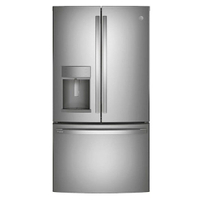Is it worth buying a refrigerator with an ice maker? Experts share the pros and cons
Are refrigerator ice makers worth it?
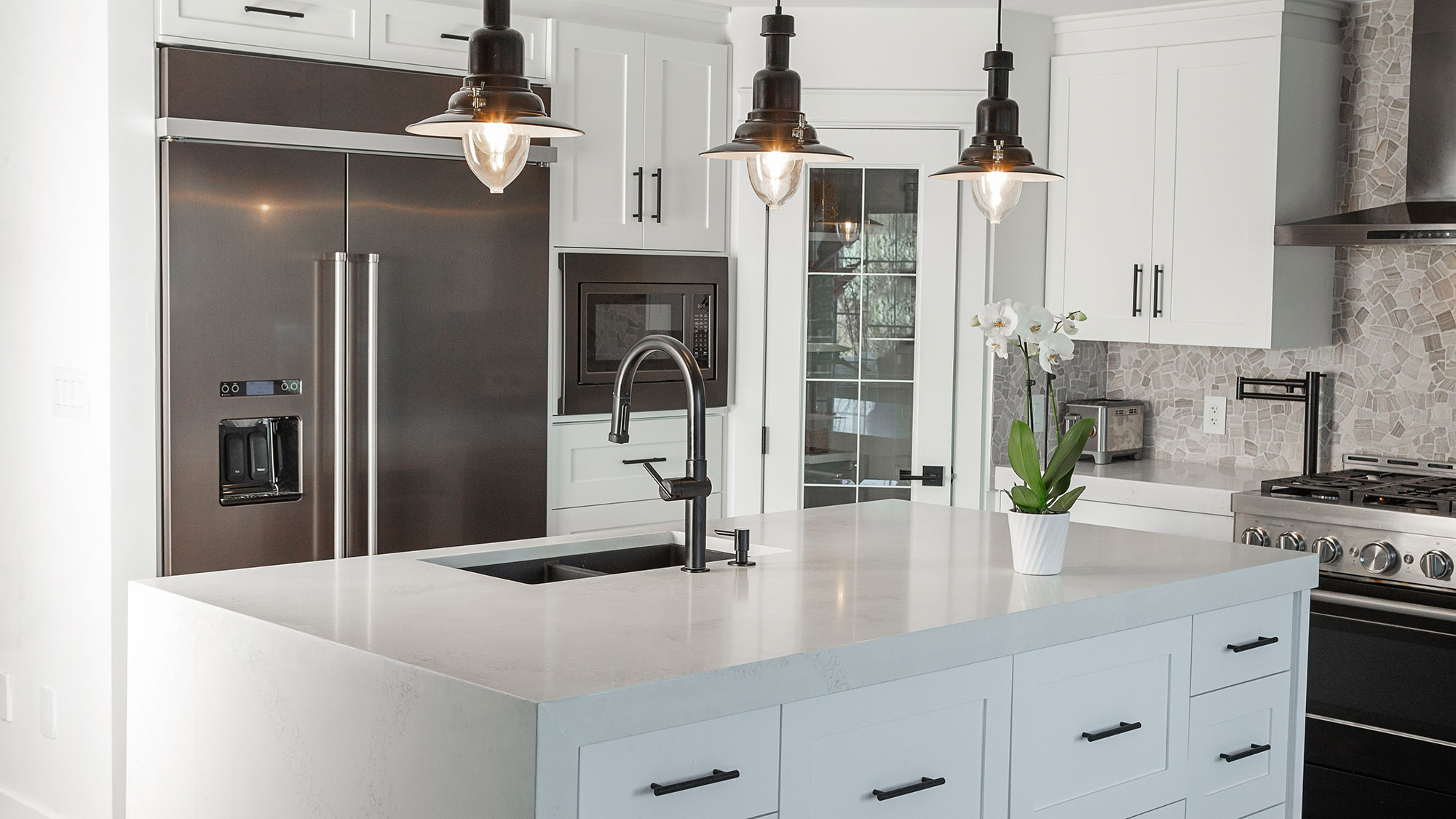
Refrigerators can come with all sorts of bells and whistles, but the most popular is a built-in ice maker. The idea of having ice on demand to add to drinks, make smoothies, blanch vegetables, or fill up a cooler is appealing, especially if it means never having to fill another ice tray ever again. Ice makers also typically include water dispensers, giving you quick access to cold, clean drinking water at any time.
But buying a refrigerator with an ice maker also means dealing with more components and parts that could break down, potentially resulting in pricey repairs. What’s more, the ice-making mechanism can take up precious space in the fridge, which could lead to a cramped crisper. And there’s another potential issue. Because water dispenser attachments need a direct connection to the home’s water supply, not all kitchens will be set up for easy installation.
While on the hunt for the best refrigerators, you may wonder if it’s worth buying a fridge with a built-in ice maker, given those added costs and tradeoffs. We talked to Shirley Hood, appliance specialist at Abt, a national retailer of electronics and appliances, to better understand the pros and cons of these appliances.
1. Convenience
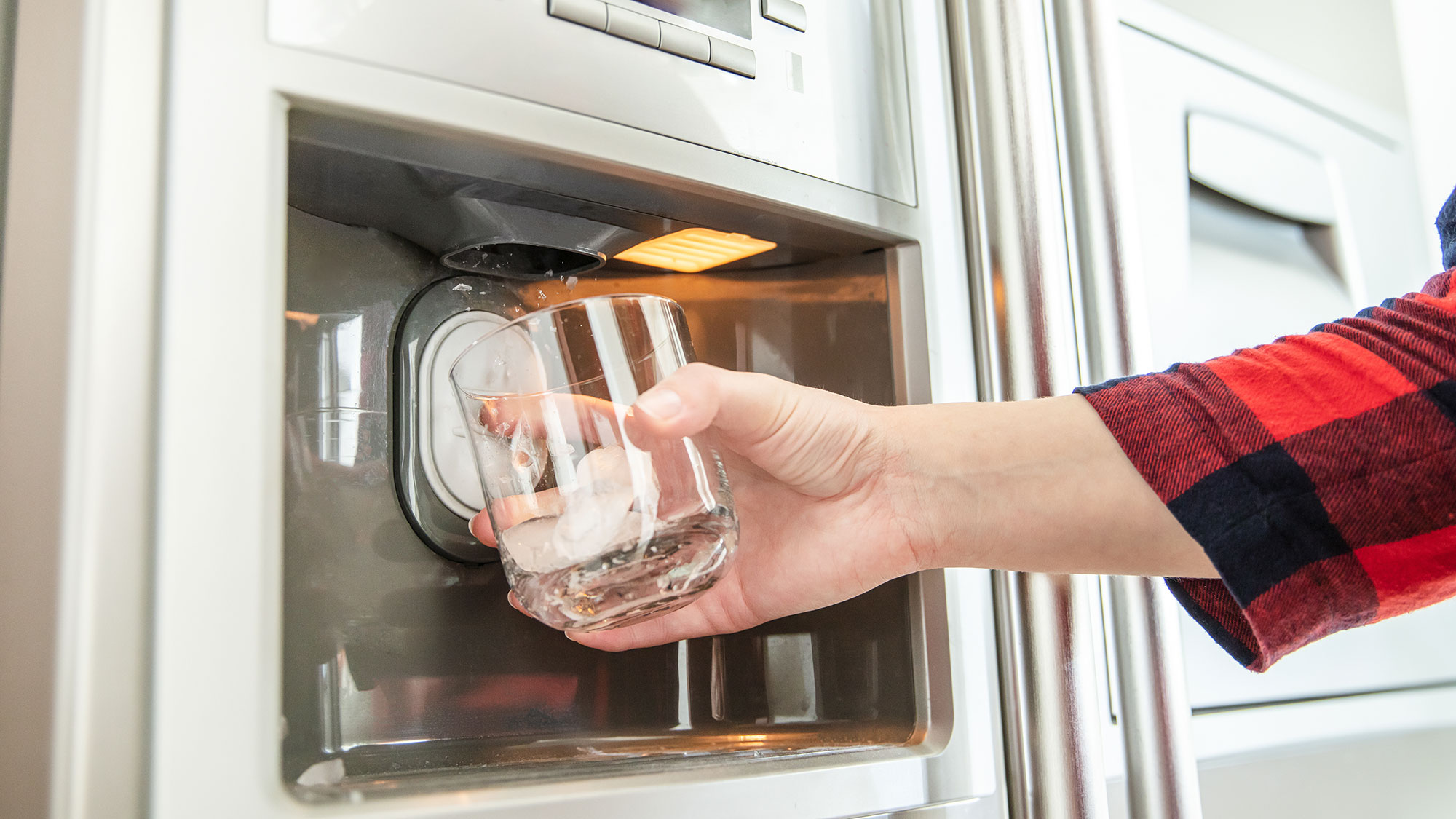
Upgrading your refrigerator with one that has a built-in ice maker won’t change your life, but it can save you time, especially if you’re fed up with continually refilling ice trays and drinking unfiltered tap water.
These appliances can continually provide clean water and ice that’s free of particulates
Automatic ice makers continually make new cubes that are deposited into the freezer’s ice container, meaning you’ll always have ice ready to go. So, whenever you’re looking to quench your thirst with a glass of soda after a workout or an indulgent cocktail to celebrate the start of the weekend, you’ll always have a ready supply of ice. Let’s face it, carrying ice trays from the sink to the freezer without spilling any water is a trained art, and once you’ve experienced the convenience of a built-in ice maker, you may not want to go back.
Hood says that these appliances can continually provide clean water and ice that’s free of particulates. “Many refrigerator ice makers are equipped with water filters,” she says. "So, not only is the water filtered, but you are also getting filtered ice.” Unfiltered water and ice, by comparison, may have an unpleasant taste.
Ice makers also often come with extra features that allow you to adjust the size and, in some cases, the shape of your ice. A common feature is a crushed ice setting, which can add extra texture to drinks such as frozen margaritas, slushies, and tiki cocktails. Some high-end models can even make spherical ice for an old-fashioned, negroni, or another cocktail. You may also prefer crushed ice to cubed ice for water, soda, and other drinks.
Get instant access to breaking news, the hottest reviews, great deals and helpful tips.
2. Space
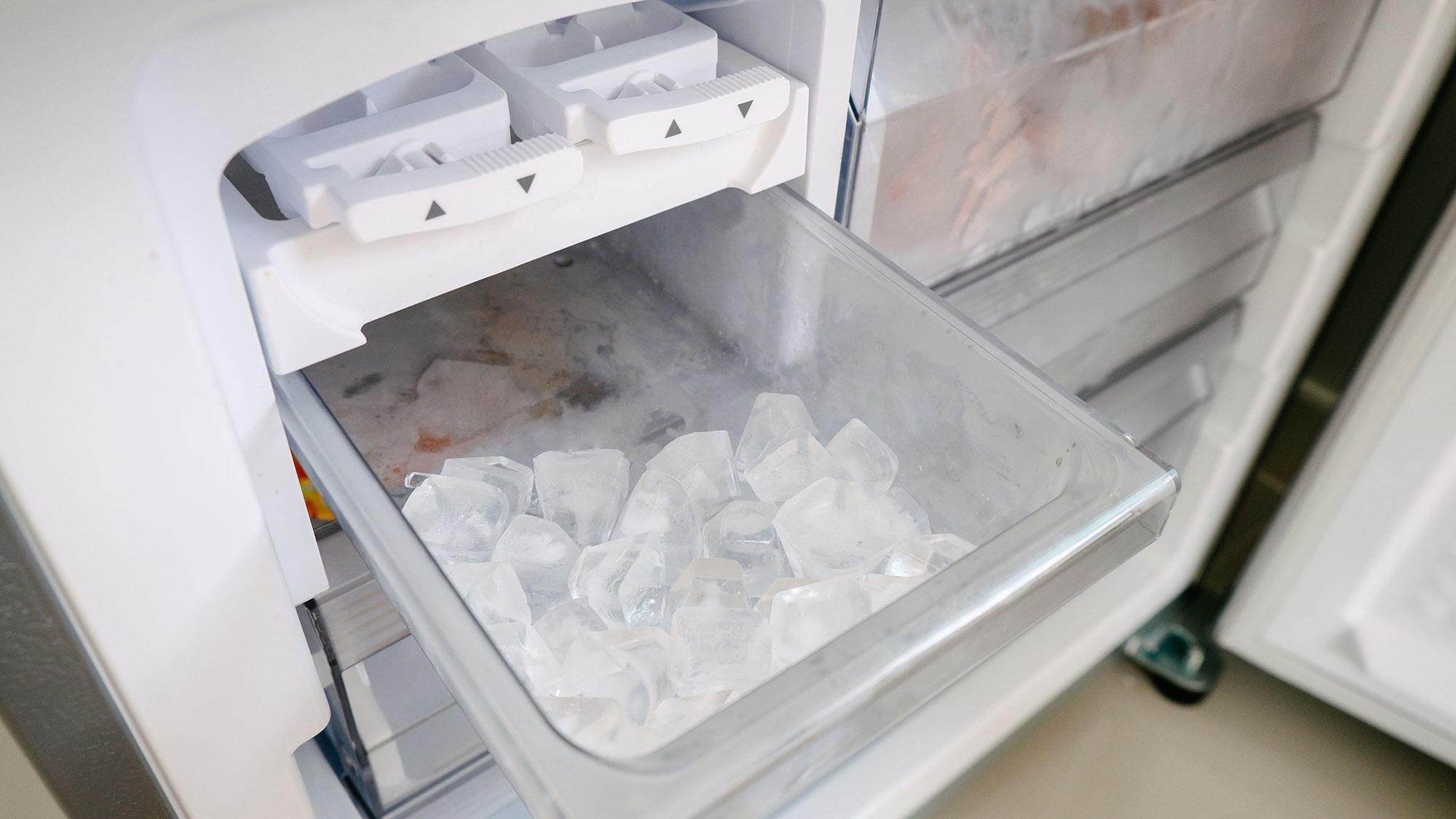
Ice and water dispensers are typically built into a refrigerator door, giving you easy access to these features. Some models may also place the water dispenser inside the refrigerator. In either case, that will mean less fridge space for your groceries. If you’re already making full use of your refrigerator, taking away some space for an ice maker could be more of a headache than it’s worth.
You may want to consider what you value more: ample fridge space, or quick access to ice and drinking water.
Newer refrigerator models do have more slimmed-down ice makers, minimizing the amount of space they take up in the fridge. Even so, you may want to consider what you value more: ample fridge space or quick access to ice and drinking water.
Alternatively, if you tend to keep a bag of ice in your freezer, a built-in ice maker will save space in that compartment. While you’ll still give up some real estate in your refrigerator to make way for an ice maker, you’ll have more room in your freezer for meat, prepared meals, leftovers, ice cream, or any other food you want to keep frozen for a long period of time.
GE Profile 27.7 Cu Ft. French Door Refrigerator with Ice Maker and Water Dispenser: was $3,499 now $2,399 @ Best Buy
This appliance features as the best overall in our refrigerator buying guide. The Energy Certified appliance features a bottom freezer drawer, with flexible shelving in the top section. The water dispenser is also operated hands-free.
3. Cost
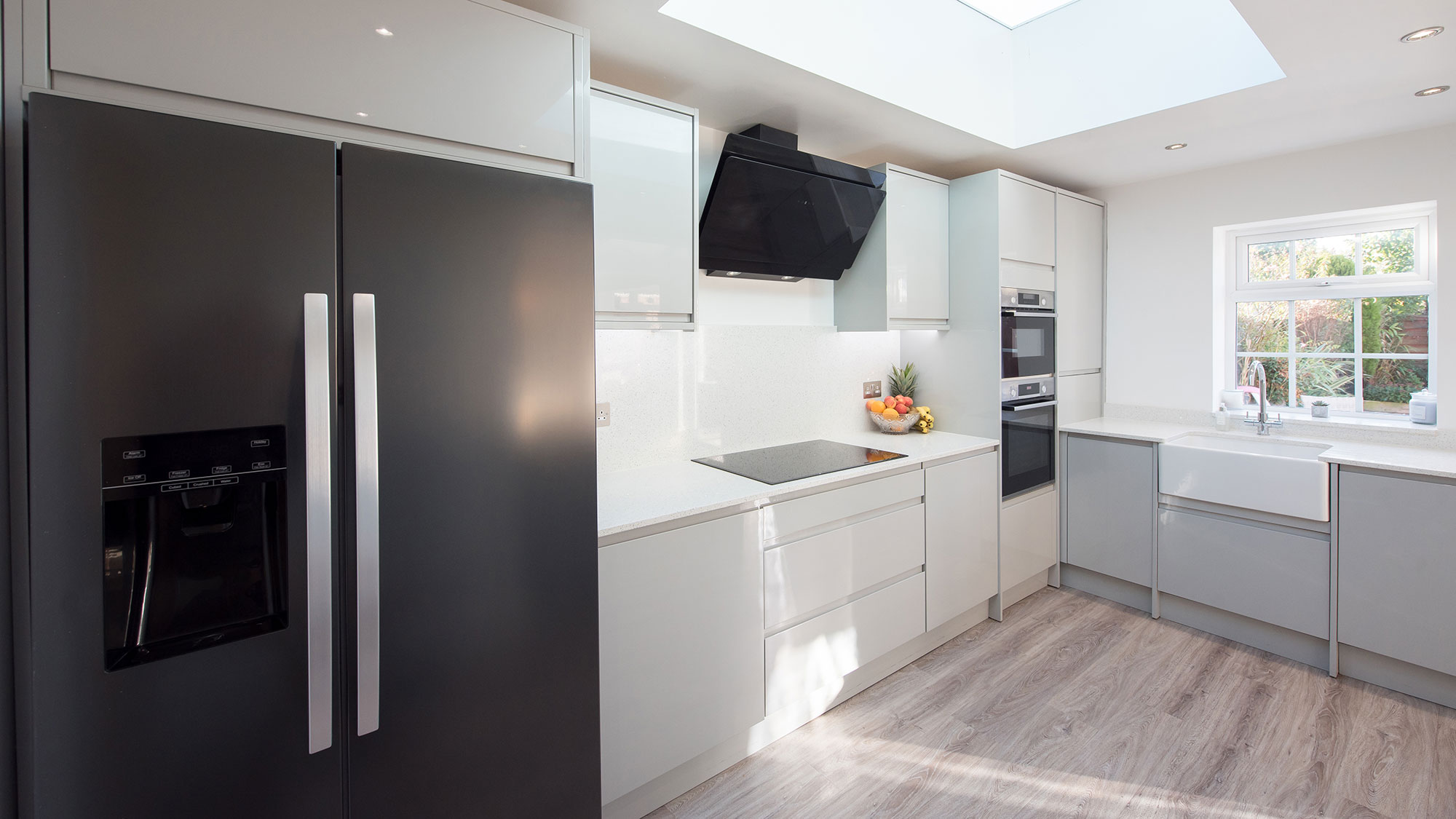
Installation cost
Refrigerators with ice makers and water dispensers are typically more expensive than standard models with the most basic features. Be warned, you could wind up forking out hundreds of dollars more to buy a refrigerator equipped with an automatic ice maker and water dispenser combination. That’s just one up-front cost, though. Installation could also be more expensive if the kitchen isn’t already set up to run a water line to the refrigerator.
“There is an added cost as you will need to replace the water filter periodically”
While running a new water line to the fridge is a fairly minor plumbing job, and refrigerator installers can typically handle this work on their own, it may still lead to an added cost, which you’ll need to work into your budget. According to Angi, installing a water line for a refrigerator can run anywhere from $75 to $130.
Ongoing cost
Once the refrigerator is installed and ready to produce ice and drinking water, there are ongoing expenses to consider too. “There is an added cost as you will need to replace the water filter periodically,” Hood says. Water filters need to be replaced every few months for refrigerators to continue providing clean water and ice without any particulates, and individual filters can cost anywhere from $15 to $60.
Then there are utility and maintenance costs to think about. Refrigerators equipped with ice makers require more electricity, and you may notice a rise in utility bills. Automatic ice makers and water dispensers also add more complexity to the appliance, with more parts and components that can break down over repeated usage.
Repairing broken ice makers can be daunting if you’re not comfortable with DIY fixes. According to HomeAdvisor, on average, paying to fix a broken ice maker could set you back between $200 and $350.
4. Reliability
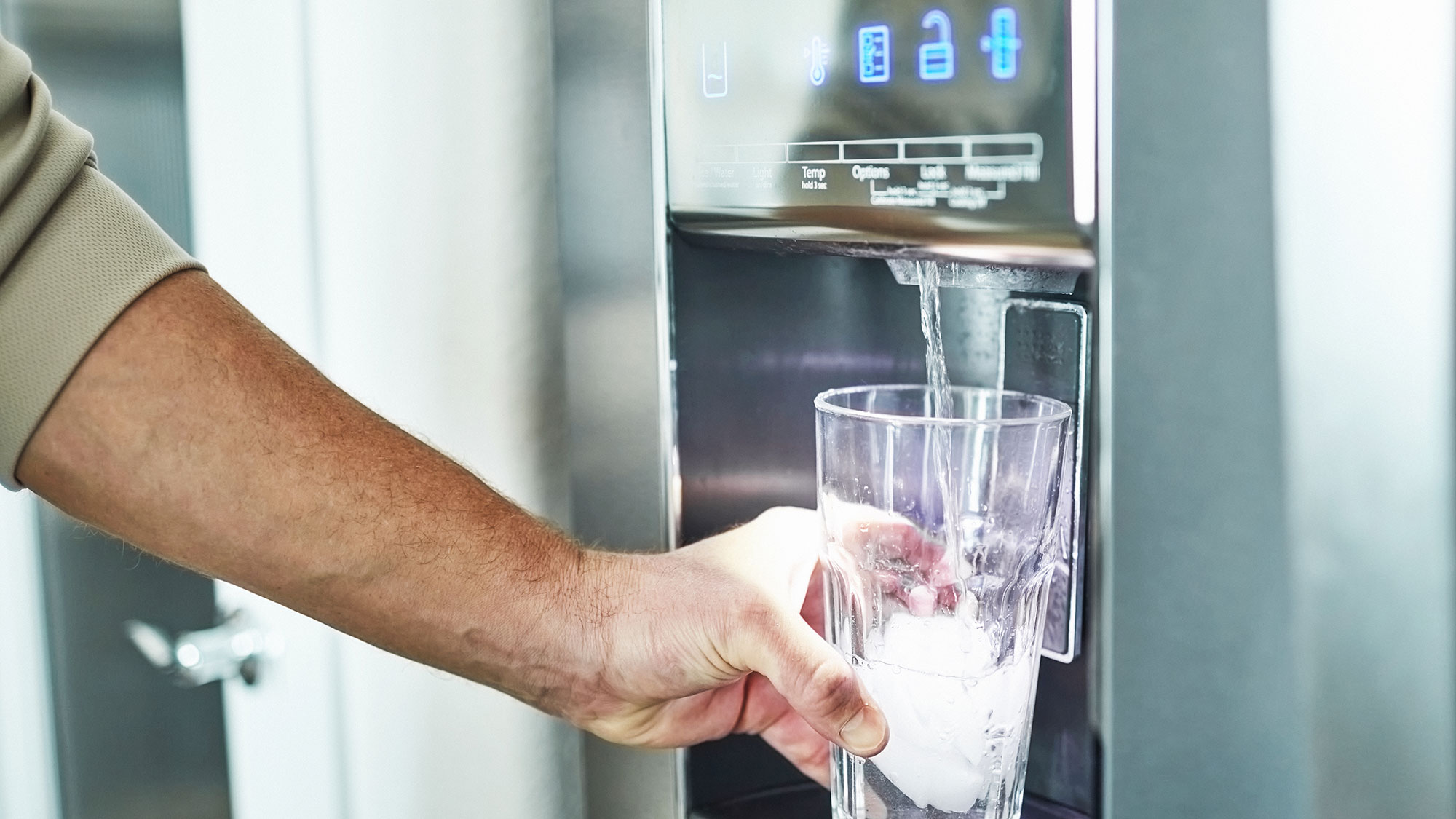
While these appliances are by no means inherently faulty, having a built-in ice maker and water dispenser adds more complexity to a refrigerator, and that increases the risk of potential performance issues. “Most built-in refrigerator ice makers are reliable, but unexpected things can happen [and] several scenarios can cause the ice maker to be problematic,” Hood says. “Examples are a defective inlet valve, a dirty water filter, or the freezer temperature is too high.”
“A refrigerator with an ice maker can have the same longevity overall as a refrigerator without an ice maker”
In some situations, you may also find that ice quality isn’t always on par with the uniform cubes you would get from an ice tray. “Ice cubes can sometimes stick together and become clumpy,” Hood says. “Reasons [for clumpy ice] include moisture evaporation, ice not used often enough, the door is not closed, or the ice bin is too full.” Having to break apart fused ice cubes may be an even bigger headache than emptying an ice tray. And with so many factors contributing to clumped ice, you may find maintaining an ice maker a chore.
Keep in mind that issues with built-in ice makers and water dispensers don’t typically impact the functionality or lifespan of the refrigerator itself. “A refrigerator with an ice maker can have the same longevity overall as a refrigerator without an ice maker,” Hood says. “The difference is you may encounter more maintenance issues because an ice maker is a constantly moving part. The ice maker breaking down doesn’t mean you have a bad refrigerator; it just means the ice maker is broken, and you’ll need to replace it. In almost every scenario, the refrigerator and freezer still work.”
How to extend the life of your ice maker
You can extend the life of your ice maker by staying on top of routine maintenance tasks, such as replacing water filters twice a year. “Many of today’s refrigerators are equipped with water filters that should be replaced every 6 months,” Hood explains. “Not sticking to that schedule opens you up to maintenance issues.” Failing to swap out old water filters can lead to poor-quality ice — and you’ll likely notice the difference. “You can have bad-tasting ice if you aren’t keeping to the water filter schedule,” Hood says.
By taking good care of your appliance, you can expect a built-in ice maker to keep producing clean ice for years. “Some ice makers can last for several years without any issues while others have lasted only two,” says Hood.
5. Installation
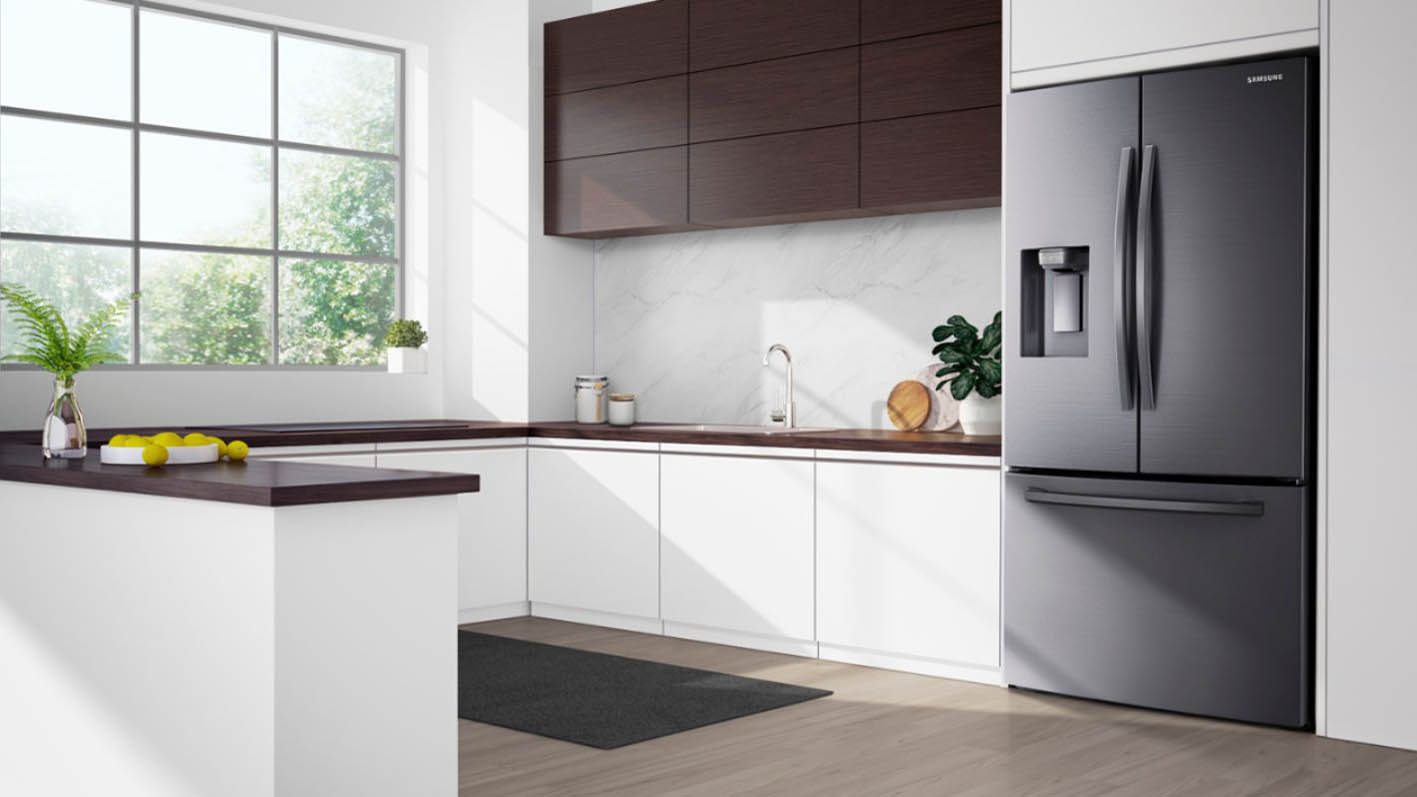
If your kitchen isn’t already set up with an accessible water line connection, installing a refrigerator with an ice maker and water dispenser will be more complicated than simply plugging it into the nearest outlet, which means it requires more work.
Not all homes are set up to make this job easy.
A plumber or installation specialist will need to run a water line from the home’s plumbing to the appliance. Often, this job is done by running a connection from water pipes in the basement directly below the refrigerator or — if there’s plumbing in the wall nearby — pipes in the kitchen. However, as Hood notes, not all homes are set up to make this job easy, and in some cases, it may be impractical to install a refrigerator with an ice maker due to the significant renovations required. “Depending on the location and space surrounding the refrigerator, a waterline may not be possible,” she says. An example would be a home without a basement or where the plumbing is on the other side of the kitchen.
Are refrigerator ice makers worth it?
You’ll need to weigh these pros and cons to decide if buying a refrigerator with an ice maker is worth it. As Hood explains, there’s no single right answer for every situation. “It depends on lifestyle and how you plan on using the appliance,” she says. “If you don’t use ice often and would rather have the added capacity you gain by not having the ice maker, it is best to select a model without an ice maker. In contrast, if you use ice regularly, enjoy making smoothies, or enjoy entertaining, having an ice maker is the obvious choice.”
More from Tom's Guide

Jeff Keleher is a writer and editor with more than a decade of experience covering financial and tech topics for various publications and companies. During the course of his career he has worked as the home finances editor for Bobvila.com, as an in-house writer for Guaranteed Rate, and as a content creator for a nationwide marketing agency. Whether he's covering flood insurance, mortgages, or appliance repairs, Jeff always strives to present complex subjects in a straightforward manner, giving readers all the information they need to make sound financial decisions.
